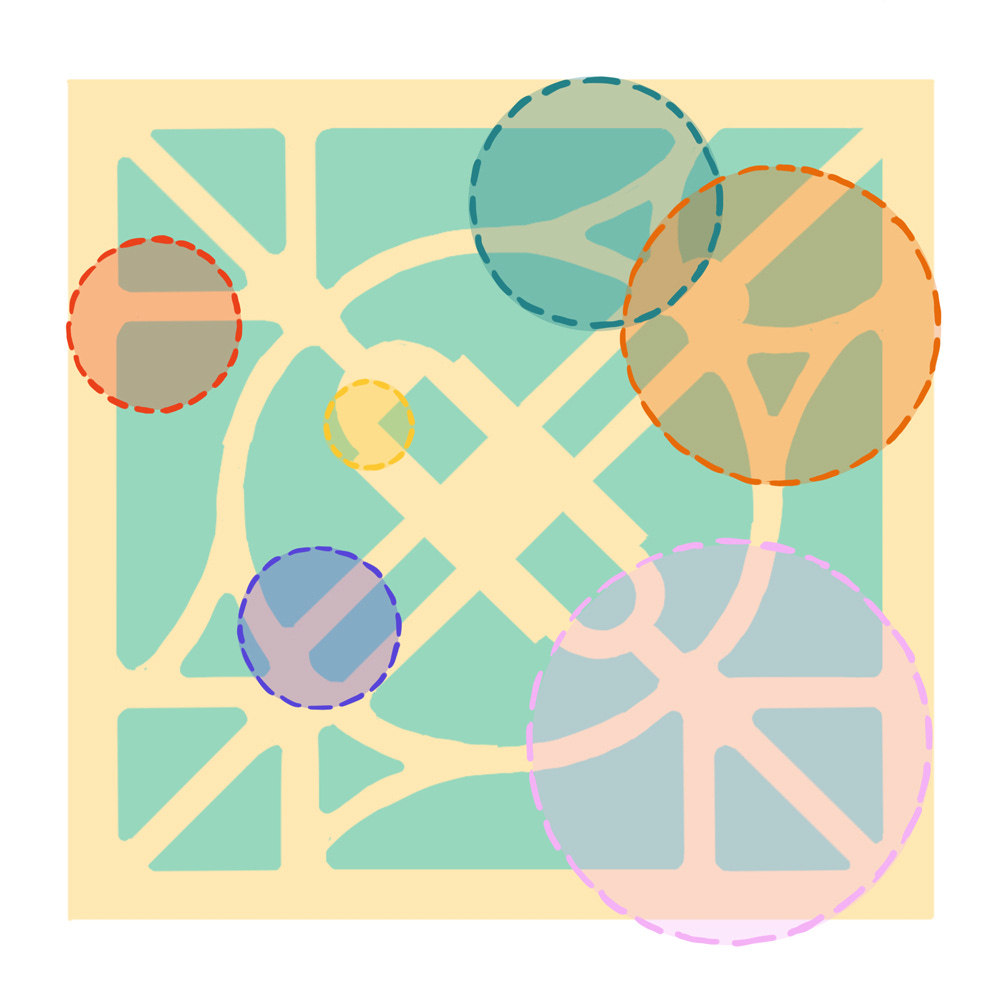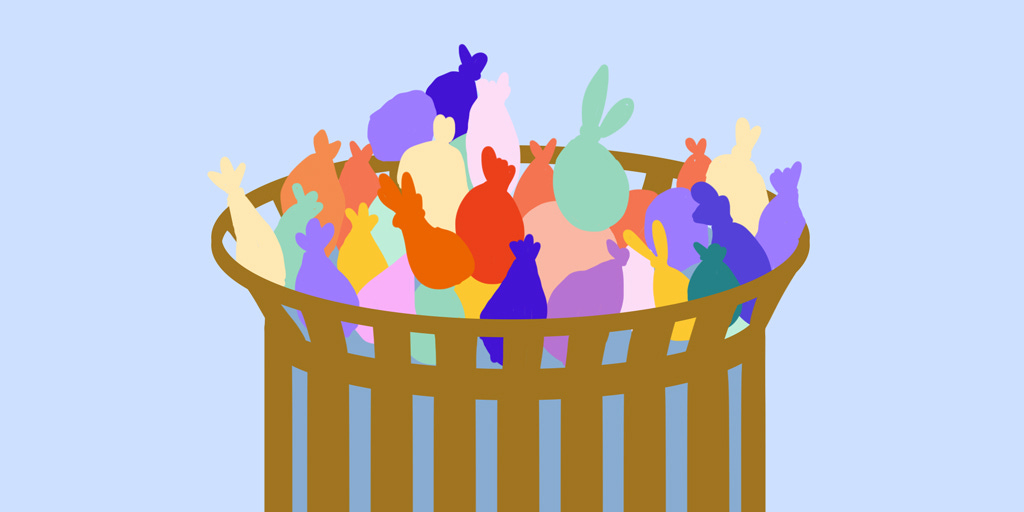#18: Making Reddit A Better Neighborhood
+ How did picking up after your dog become a civic duty?
Welcome to Civic Signals, the newsletter where nobody knows you’re a dog park
This week: We kicked off our Library Design Sprint. If you like what we’re doing here, please check out what we’re doing on Twitter and tell your friends, too. What can the design of a public park teach us about an online community? And after Reddit shut down some of its notorious subreddits, what’s the difference between a filter bubble and an echo chamber, anyway?
Keywords: Filter bubble
n. an informational network from which relevant voices have been excluded by omission.

In the news media, an “echo chamber” describes a closed system, a social structure from which other relevant voices have been actively discredited. A “filter bubble,” as coined by Civic Signals’ Eli Pariser, describes the inadvertent ways we might avoid contact with contrary views on web pages and social media feeds. Philosophy professor C Thi Nguyen described the distinction between the two ideas this way, “A bubble is when you don’t hear people from the other side. An echo chamber is what happens when you don’t trust people from the other side.”
What’s clicking
🌐 Online
The New York Times is opting out of Apple News - Nieman Lab
Fifty years ago, the first online video conference happened - Fast Company
More advertisers fleeing Facebook as boycott grows - CBS News
🏙️ Offline
Public spaces weren’t designed for pandemics. New York City is trying to adapt - New York Times
Accelerated by COVID-19, apps are delivering our ghost-kitchen future - New Yorker
Graphic designer Milton Glaser, of I ❤︎ NY fame, died at age 91.
Here are seven of his greatest works - Fast Company
🔗 Linked
Millions of Americans depend on the library for their internet.
Now they’re closed - The MarkupWhy phone contact tracing won’t work to save black lives - TechDirt
National Building Museum presents an online exhibit of New York City during COVID-19 - Architect’s Newspaper
☞ This week’s Double Click
The 1947 film that eerily predicted how people would use smartphones - Kottke
🙌 From the CS team:
Civic Signals co-director Eli Pariser appeared on Crooked Media's new Hank Green show to discuss free speech and social media: Watch it here.
No walk in the park
This week, Reddit announced a new content policy on hate speech that would remove more than 2000 subreddit groups, including r/The_Donald. The subreddit, started at the beginning of Trump’s candidacy in 2015, grew to 790,000 users becoming one of the most active, but also most notorious communities on the site as it gave way to racism and conspiracy theories.
In the outline of the new policy, Reddit CEO Steve Huffman wrote “no community should be used as a weapon.” But the challenge is as much how the group’s behavior began to define Reddit as a place, with trolls going beyond the boundaries of the subreddit to harass the site’s other users. We’ve seen how even well-meaning principles of openness can lead to problems, as a new study of harassment of users on r/feminism by Citizens and Tech found this week after two years of research.
In moderating online spaces, the neglect of one bad community can spill over to other communities. So if we’re looking for an analogue to public space that mediates the online challenge of open access and group harassment, look no further than the public park.
In the Death and Life of Great American Cities (1961), Jane Jacobs describes why neighborhood public parks can succeed or fail rather than serving as an inherent public good by default. Much like the dead ends of sidewalks, cities have reckoned with how to encourage an environment that makes people comfortable with each other. In chapter 5, “The uses of neighborhood parks,” Jacobs argued in the 1960s that cities can’t simply pursue the idea that “More Open Space” can fix a city much like a more open internet can’t solve all of the web’s neighborly problems. As Jacobs writes, “People do not use city open space just because it is there and because city planners or designers wish they would.”

The challenge of building a healthy park isn’t as just drawing out a boundary to fill with liveliness. Comparing four equally-sized parks in Philadelphia, Jacobs singles out Rittenhouse Square as a successful park because it has a wide variety of uses: for shopping, working, leisure, and dwelling. Jacobs describes how the “intricacies” of a park encourage its use by many different people at different times or else they become dull:
If the whole thing can be absorbed in a glance, like a good poster, and if every place looks like every other place in the park and also feels like every other place when you try it, the park affords little stimulation to all these differing uses and moods. Nor is there much reason to return to it again and again.
Jacobs argues that parks alone can’t fix systemic problems like crime or economic decline. An isolated park can very well populate with people, but it can encourage the kinds of bad behavior that discourages their beneficial uses.
That’s what we see online with these toxic communities like the r/The_Donald subreddit: They’re full of people, but they draw a group into the same behaviors that make the place feel unsafe. Left self-moderated at their center, like-minded people reinforce each other's views, but misbehaving together turns into users rejecting outside voices. In Reddit’s case, this group went from people creating their own rules about hate speech that defied outside moderation to disrupting activities of users on other subreddits on the site. Moderation is about making the space feel like there are boundaries that establish norms, while also remaining permeable to newcomers to find their footing, but the culture r/The_Donald encouraged made it tougher for new Reddit users to join discussions anywhere on the site.
Jacobs argues what planners can do is design for the “centering” of features like fountains or art that encourage activities like guitar playing, dancing, sunbathing, photography, reading, etc. The mixture of uses can then create the conditions for building trust between networks of neighbors and strangers that allows for the “eyes on the street” concept to help city life flourish, rather than requiring strict enforcement.
Civic Signals illustrator Josh Kramer remembers what it was about the Philadelphia park that Jacobs lauded that makes it work so well:
As someone who grew up in the suburbs of Philadelphia, Rittenhouse Square defined everything I loved about city living and wanted in my life. I have so many memories of the square: walking through with my grandmother; eating tomato pie on my lunch break from the upscale Italian grocery up the block; the elegant old trees draped in Christmas lights; friends getting married at a church on the corner. It’s the place that every city wants, but few can replicate the exact conditions that make it so special.
Make It Digital: Do your duty!

The history of dogs in cities is inherently messy, and so were the politics around cleaning up their messes. Before 1978, New York City didn’t even have any laws requiring dog owners to pick up after their four-legged friends on the sidewalk. Even with half a million dogs at the time in the city, picking up after man’s best friend was an unimaginable concept. (Before that, dog owners were required to curb their pet to go into city gutters.)
Even as fights ensued in the city over dog waste, the problem seemed untouchable for city politicians, who feared the anger of pro-dog and anti-dog groups that had become polarized over the issue. Writer Michael Brandow details in his book, New York's Poop Scoop Law: Dogs, the Dirt, and Due Process, Mayor Ed Koch had to make the case to the state’s legislature to make the change possible. Speaking to Vet Street in 2013, Brandow explains that even after the law got passed, it required reinforcing norms more than writing tickets:
"It's not the law, it's the custom. It was about public education and changing our perception of what our individual duties were."
For our Make It Digital series: What kinds of cleanup customs, like picking up after your dog, do you think we need for a more public-friendly internet? What inconsiderate online behaviors do you think we’ll be embarrassed to remember? Which ones can we fix that we’ll laugh off later? Send us a note with your ideas at civic.signals@gmail.com or @ us on Twitter with #MakeItDigital.
Signing off,
Andrew Small
Illustrations by Josh Kramer
Civic Signals is a partnership between the Center for Media Engagement at the University of Texas, Austin and the National Conference on Citizenship, and was incubated by New America. Please share this newsletter with your friends!



